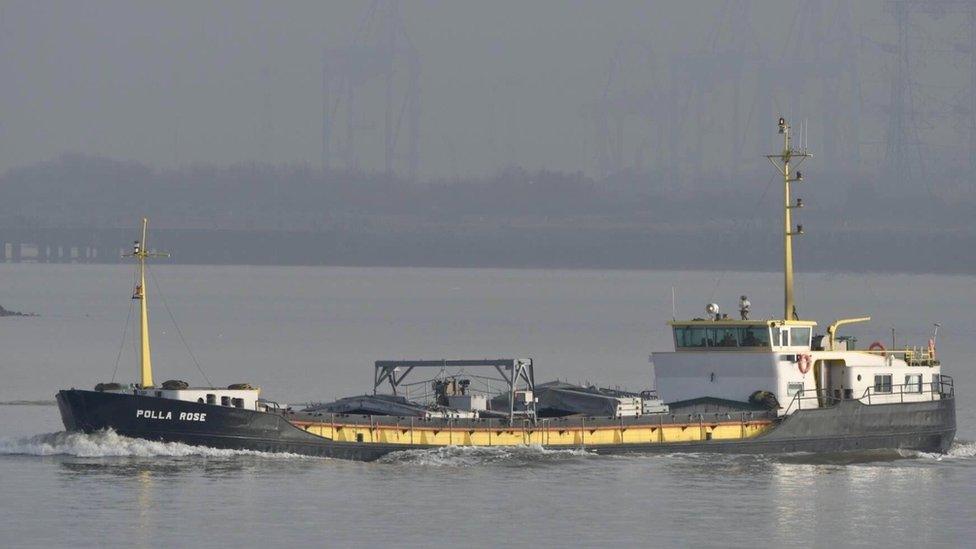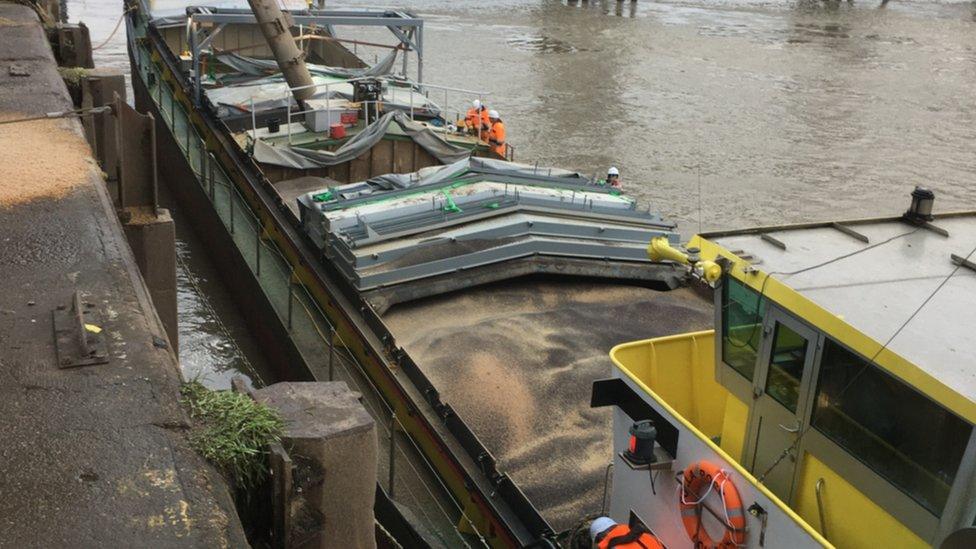Essex Port replaces trucks with barges to deliver crops
- Published

The Polla Rose transports rape seed from Tilbury Port twice a day
A port has begun transporting thousands of tonnes of oil seed rape by barge rather than truck.
The Port of Tilbury in Essex launched a coastal barge operation to deliver the crop to its customer ADM - a processing facility at Erith on the River Thames.
Some 500 tonnes of the crop will be moved twice-daily and each round trip will take about seven hours.
Tilbury said the water-borne freight option will lead to 36 fewer truck journeys each day on UK roads.
The barges would help "support our environmental efforts and optimize our supply chain," said Martin Farrow of ADM.

Oil seed rape will now go for processing by barge to a processor instead of trucks
Gary Vincent, a spokesman for the Port of Tilbury, external, said "this cargo movement has been a success both operationally and as a greener supply chain solution for our customer".
Goods sent via inland waterways consist mostly of aggregates such as building supplies for housing and larger projects like the Thames Tideway Tunnel, according to Logistics UK, formerly known as the Freight Transport Association.
The total volume of goods moved via water has declined by 51.3% since 2008, according to Logistics UK, external.

Find BBC News: East of England on Facebook, external, Instagram, external and Twitter, external. If you have a story suggestion email eastofenglandnews@bbc.co.uk